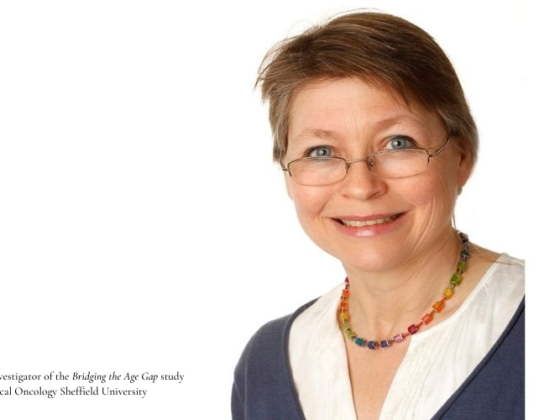Current access to high quality oncology biomarker testing across Europe is inconsistent and contributes to health inequalities. To address barriers to biomarker testing, the ‘Unlocking the potential of precision medicine in Europe’ report (published February 23 2021) proposes 12 policy recommendations including the short term goal all cancer patients eligible for biomarker-linked therapy should undergo testing for all clinically relevant biomarkers, and long term goal testing should be repeated throughout treatment (not just at initial diagnosis). The report identifies ‘inconsistent biomarker test access’ as the barrier to ‘ realising the promise of precision medicine’.
“By laying out clear recommendations for optimising patient access to the ideal biomarker testing paradigm, this paper is contributing to achieving a vision of universal access to precision medicine in cancer care for all European cancer patients,” write the authors of the report, which was jointly commissioned by the International Quality Network for Pathology (IQN Path), the European Cancer Patient Coalition (ECPC), and the European Federation of Pharmaceutical Industries and Associations (EFPIA).
Biomarkers and biomarker testing represents a significant pillar of precision medicine, informing personalised treatment decisions. Biomarker tests can identify patients most likely to respond to treatment, predict and monitor disease progression and identify people at increased risk of developing given conditions. Broadly, there are two types of biomarker tests – the single biomarker test (evaluating the presence of a single gene mutation, gene or protein associated with a particular form of cancer) and the comprehensive multi-biomarker test (using next generation sequencing to detect multiple alterations in genes known to drive cancer growth).
The report set out to assess the current status of biomarker testing in the 27 member countries of the European Union and UK, with a view to assessing availability, quality and reimbursement of biomarker tests, identify country-specific shortcomings and develop policy recommendations to improve equitable access and quality of biomarker testing across Europe. In order to assess the current status of biomarker testing, the authors explored use of a set of 12 biomarker tests plus liquid biopsies across 28 countries. Additionally for the report, the authors drew on a wide range of secondary sources, including surveys of 141 laboratory managers and of 1,665 patients and 58 in depth interviews with laboratory managers, physicians and payers.
The report identifies six key barriers that need to be overcome as a matter of urgency to allow patients, physicians and healthcare systems to realise benefits of biomarker testing.
- Limited availability of precision medicine linked to biomarkers. Surveys show average time to treatment access ranges from 127 days in Germany to over 823 days in Poland.
- Typically, reimbursement of biomarker tests are not linked to the medicine they are being tested for.
- Diverse laboratory infrastructures and referral pathways. Some countries lack referral pathways to support equal access for all patients, and laboratories vary in their capability to perform specific biomarker tests.
- Limited availability of public funding to support biomarker tests.
- Low physician awareness of available biomarker tests and their benefits as well as limited knowledge of referral pathways.
- Inconsistent laboratory participation in quality assurance schemes, limiting utility of results.
The eight short-term recommendations in the report are:
- Parallel approval of the medicine and associated test to ensure they are available at the same time in a given country.
- Adopt a national system for biomarker test value assessment.
- Introduce dedicated diagnostic budgets to support reimbursement of all biomarker tests, removing regional variation and access inequality.
- Mandatory laboratory accreditation schemes to ensure quality assurance.
- Creation of regional testing centres in countries to drive cost efficiencies and develop technical expertise.
- Education for key stakeholders (e.g. physicians, pathologists, payers, patient advocacy groups and policy makers) on utility of biomarker testing.
- Centralised data collection to advance understanding of genomic alterations and role in driving cancer.
- Establish processes for horizon scanning to better anticipate future demand and funding requirements.
The four long term recommendations in the report are:
- Harmonise approaches along the test development continuum, including guidance on biomarker use during clinical trials and for value assessment of biomarker tests to inform reimbursement decisions.
- Promote development of networks of specialised labs at national level to carry out testing and interpret results.
- Encourage sharing of biomarker data and collaboration between key stakeholders across Europe.
- Develop EU/ UK wide guidelines to promote use of comprehensive testing at various stages of the disease journey and implementation of best practice methods.
The report also argues for creation of country-level precision medicine task forces to oversee national initiatives, and at the European level a centralised task force to monitor and guide national initiatives. Immediate action, write the authors, is paramount. “Medicine development in oncology is rapidly evolving, facilitated by a greatly improved understanding of cancer as a genetic disease. It is a therefore a matter of urgency to provide the biomarker testing infrastructures and processes required in order to deliver the benefits of these therapeutic advances to patients and to ensure that the pace of innovation can be sustained.”












